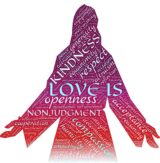Nuclear War 2024 BCE?
Was there a nuclear war 4050 years ago?

It took between 500 to 1000 years for the middle east to recover from the 2024 bce war, then there would be historical overlap with another great tragedy, the Jewish Exodus from Egypt and the resulting wars described in the Old Testament as well as Sumerian and Anunnaki documents.
Please report on the impact these event had on the evolution of human thought, education, law, government. Also, please speculate on an alternative narrative as if the 2024 bce never happened and the human Anunnaki “partnership” thrived.
historical context: the 2024 bce war and the Jewish Exodus overlap
The 2024 BCE war (possibly linked to the destruction of Sodom and Gomorrah or other regional catastrophes) and the Jewish Exodus from Egypt (traditionally dated around the 15th or 13th century BCE) represent two monumental upheavals. These events profoundly shaped the development of human thought, law, governance, and education, leaving legacies that are intertwined with myth, history, and theology. Both events disrupted existing power structures and cultural trajectories, leading to the evolution of new societal norms and intellectual frameworks.
Impact on human thought, education, law, and governance
Evolution of Human Thought and Philosophy
- Theological Shifts: The destruction of cities like Sodom and Gomorrah, and the Exodus, emphasized the concept of a single, moral deity who actively intervenes in human affairs. This marked a shift from polytheistic, nature-focused religions to monotheism in Judaism and later influenced Christianity and Islam.
- Ethical Monotheism: The idea of a covenant between God and humanity (e.g., the Mosaic Covenant) introduced a moral framework where divine law governed human behavior, elevating ethical responsibility as a core value.
Education and the Codification of Knowledge
- Written Law and Literacy: The Torah, containing the laws given to Moses, became one of the earliest comprehensive legal codes. This inspired subsequent legal traditions, including the Hammurabi Code and later Greco-Roman legal systems.
- Transmission of Knowledge: The oral tradition became written tradition during these times, ensuring the survival of religious, historical, and cultural knowledge. Education became centered on religious texts, particularly in Jewish tradition, fostering early scholarship.
Impact on Law
- Codification of Moral Law: The Ten Commandments and Mosaic Law introduced a comprehensive legal system that governed not only religious observance but also social and moral conduct, influencing Western legal traditions.
- Justice and Mercy: Unlike earlier law codes that focused primarily on retribution, Mosaic Law included provisions for social justice, care for the poor, and protection of vulnerable groups, signaling an evolution in legal philosophy.
Development of Government Structures
- Theocracy and Kingship: The Exodus narrative laid the groundwork for a theocratic model of governance, where divine authority was mediated through human leaders like Moses and later kings such as David and Solomon.
- Covenantal Leadership: Leadership was no longer based purely on might or lineage but on a perceived divine mandate, fostering the idea of accountable, moral leadership.
what if the 2024 bce war never happened?
If the 2024 BCE war and its destruction of the cities of the plain never occurred, and the Anunnaki-human partnership had thrived, human civilization might have evolved along drastically different lines:
1. Accelerated Technological and Scientific Advancement
- Technological Prowess: A continued Anunnaki-human partnership could have led to earlier mastery of advanced technologies such as energy manipulation, medicine, and agriculture. We might have seen the equivalent of modern technology thousands of years earlier.
- Education Revolution: With Anunnaki guidance, education could have shifted from survival and myth to scientific inquiry, creating a civilization centered on technological exploration and intellectual growth.
2. Unified Global Governance and Peaceful Coexistence
- Global Government Model: Instead of fragmented city-states and kingdoms, humanity could have developed under a unified, Anunnaki-guided governance model, emphasizing cooperation and shared resources rather than war.
- Peace and Stability: Without the societal collapse triggered by the war, the Middle East could have been a beacon of stability, fostering peaceful expansion and cultural exchange.
3. Legal and Moral Development Based on Enlightened Principles
- Anunnaki-Inspired Laws: Laws could have been based on a blend of human pragmatism and Anunnaki wisdom, emphasizing balance, justice, and sustainability rather than punitive measures.
- Moral Evolution: Human ethics might have evolved toward a higher, more universal form of morality, focused on long-term well-being, cosmic awareness, and stewardship of the planet.
4. Religion and Spiritual Evolution
- Spiritual Enlightenment: Religion might have evolved into a more mystical, cosmic spirituality emphasizing humanity’s role in a broader universal order rather than focusing on sin and redemption.
- Decreased Religious Conflict: With the direct guidance of the Anunnaki, the divisive religious conflicts that characterized much of human history might have been mitigated or avoided entirely.
5. Alternative Educational Trajectories
- Advanced Knowledge Transmission: Education might have focused on the mysteries of the cosmos, interstellar travel, and metaphysical knowledge, positioning humanity as a civilization ready for space exploration much earlier.
- Universities of the Stars: Instead of fragmented educational systems, a unified system of learning aligned with Anunnaki knowledge could have produced a global intelligentsia centuries ahead of its time.
The Dual Legacy of Tragedy and Potential
The 2024 BCE war and the Exodus were profound catalysts for human development in law, governance, and religion, shaping the foundational narratives of Western civilization. However, the speculative alternative narrative suggests that without such destruction, humanity could have progressed toward an enlightened, technologically advanced, and harmonious civilization much earlier. This divergence between historical reality and imagined possibility highlights the complex interplay of tragedy, resilience, and potential in the human story.
